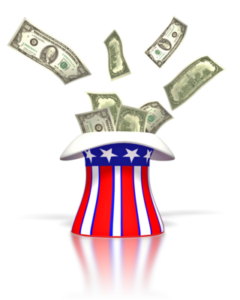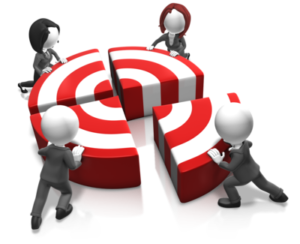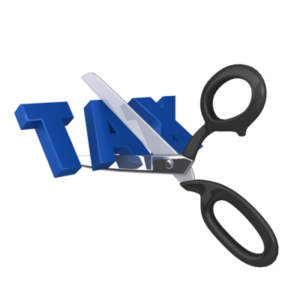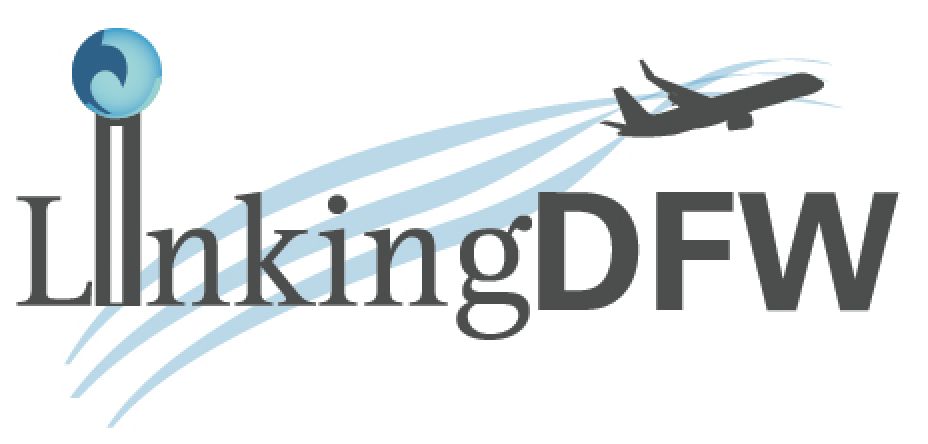Tax savings, real or imagined?
 Every year as we approach April 15, I receive a number of calls asking about contributing to an IRA or other Qualified Retirement plan, because of the “tax savings” offered by making such contributions.
Every year as we approach April 15, I receive a number of calls asking about contributing to an IRA or other Qualified Retirement plan, because of the “tax savings” offered by making such contributions.
And it is true that contributing to such a plan will reduce your tax liability in the year that you make the contribution.
However, to call it a “tax savings” may not really be accurate. Contributing to an IRA or a qualified retirement plan really does two things: it defers the tax, and it defers the calculation of the tax, to an unknown date and rate. I know the theory is that you will be in a lower tax bracket when you retire, but in my 40-plus years of being a financial advisor, I have learned that very often clients are actually in a higher tax bracket after they retire.
There are a few reasons for this; many of the deductions and exemptions you had during your working career are gone. Such as your now paid off mortgage interest and your no-longer-dependent children. Your tax bracket may have actually increased.
And many taxpayers have assumed that their Social Security income will be tax free, only to learn that due to withdrawals from their retirement plans, or other income they receive such as Muni Bond income, up to 85 percent of the SS income is taxable. Another “gotcha” from our friendly uncle!
And what if the IRS changes the thresholds as they have done many times in our history? That is the single easiest method to increase tax revenues – simply redefine who is “rich.” The most dramatic example of that is what happened in 1942. In 1941, the maximum tax bracket was 81 percent on all income above $5M.
In 1942 the rate was changed to 88 percent on all income above $200,000. Talk about a huge increase! Then they followed that up with an increase in 1944 to 94 percent on all income over $200,000. A similar change occurred in 1965, in 1982, and in 1987 also, although these were not as dramatic as 1942.
Will they do that again sometime? It’s anybody’s guess, but consider this: normally wars are paid for by tax increases, but we didn’t have increases following the Gulf war or Iraq. We have all time high national debt, and a comparatively very low tax environment. It’s probably not going to get better any time soon.
The good news is there really are strategies that can reduce taxes. I’ll be glad to discuss tax strategies if you’d like, feel free to call or email.
I’ll be glad to discuss tax strategies if you’d like, feel free to send me an email ken@kendallfinancial.net, or call my office 972-874-8757.
Five ways to get what you want
 OK, first a confession. I read an article recently that said we are more likely to read something if it has a number in the title (take a look at the magazine articles at the grocery checkout) and gave some amazing statistics which I don’t remember now, but I was impressed and realized that it works with me.
OK, first a confession. I read an article recently that said we are more likely to read something if it has a number in the title (take a look at the magazine articles at the grocery checkout) and gave some amazing statistics which I don’t remember now, but I was impressed and realized that it works with me.
Then I wondered why. I think it is because there are so many demands on our time that we want to know in advance how long this going to take. If I’m reading a list I can quickly scan it and get the high points, but I don’t want to be drawn into something, even if it is interesting, and find that it is twenty or thirty pages long and I don’t have time to read it all.
Enough of that, here is your list.
- There are probably thousands of ways to get what you want, but I think they all have to start the same way: Define what you want as clearly and precisely as possible. This doesn’t have to be set in stone, you can always adjust your goal as new information becomes available. It’s been said thousands of times, if you don’t know where you are going, any road will get you there, and you may not like where you end up.
- Map out a plan. Someone has reached your goal in the past, find out how they did it. Athletes and business leaders almost all use coaches, someone who can look at what you are doing and objectively tell you the changes necessary to achieve your goal. It’s hard to do it all on your own and one of the big reasons is “you don’t know what you don’t know.” And we all have blind spots.
- Begin. You are never going to reach your goal, desire, wish, or fantasy if you don’t start. You can always adjust, but you must begin.
- Review and assess. This is the only way to know if you are making progress in achieving your goal. You can’t just put a project on automatic pilot and see where you end up. You’ve got to watch your progress and be sure you are staying on track.
- Enjoy your success and “What’s next?” We humans seem to be wired more for the “quest” than the accomplishment of a goal. It gives us purpose and direction, but once achieved we will be looking for the next goal.
I’ve been assisting clients achieve their financial goals with these five steps for over 40 years, by providing coaching and strategies that are custom made for your lifestyle, concerns and needs. Feel free to call 972-874-8757, or email ken@kendallfinancial.net for an initial chat about your goals.
What will happen if?
 The human brain is bombarded with information, much more than it can effectively process, and over the millennia it has learned to deal with this data tsunami by simplification.
The human brain is bombarded with information, much more than it can effectively process, and over the millennia it has learned to deal with this data tsunami by simplification.
It attempts to sort out what is important and needs to be dealt with now, from those things which can be ignored or put off till later. A problem arises when we ask, are things being sorted properly? Concrete needs or problems are easier to sort, but what about the more abstract issues that didn’t exist when consciousness was developing in our brains?
Abstractions or events that may or may not happen in the future, just don’t share the same urgency or priority as food, love, security, shelter and such. I have a friend who is a mediocre player in an amateur pool league, but he is frequently able to beat players who are more skilled than he is.
Part of the reason for this is that before he shoots he asks himself, “What will happen if…” That question forces him to set aside his first and most obvious objectives and look at what might happen in this game if he misses this shot, or if he makes it, what happens next. This exercise attempts to put more thought into his actions and gain more control over a sequence of possible events.
Something I’ve found after years of helping my clients with their financial planning is that we frequently live with a lot more risk than we realize. Sometimes we live with this risk because we either believe we can’t, or actually can’t, afford to protect ourselves from it. Health insurance has frequently fallen into this area.
Many people still try and get by without insuring their car because of the cost, to the chagrin of the rest of us. Other risks are too abstract or seem too difficult to deal with, such as the volatility of the stock market or how the world economy affects us.
Finally, there are those risks that are just difficult to deal with because of the emotional issues: death, divorce, declining health, errant adult children and so forth. I have explored these these issues for decades with thousands of clients. I don’t have all the answers, but I know how to ask the, “What happens if…” questions in a manner that will allow you to bring that abstraction into a reality that can be assessed and dealt with.
A good financial planner assists you in finding solutions to risk that make sense in your unique situation. If you think you could benefit from someone asking you, “What happens if” give me a call at the office at 972-874-8757 or send an email to ken@kendallfinanciall.net. We’re here to help.
Death & Taxes
 The old expression that “nothing is certain except death and taxes” will take on a new meaning on Jan 1, 2011.
The old expression that “nothing is certain except death and taxes” will take on a new meaning on Jan 1, 2011.
As you may know, the rules governing Federal Death taxes were changed back in 2001, and the current laws will expire at the end of this year. This year there is no Federal Estate Tax, so no matter how large an estate, people who die in 2010 will have no Federal Death taxes. However, effective Jan 1, 2011 the old rules come back, and any estate over $1 Million will be subject to Estate taxes, which can be as much as 55-60%. Most estate planning practitioners expected Congress to change the tax rules prior to Dec 31, 2009, but in their dedication to pass health care reform, they didn’t get around to addressing the Estate tax.
How will this affect you? If you die with as- sets over $1 Million, your estate may owe taxes. That may seem like a large estate, but consider the value of your home, your life insurance, your re- tirement plan balance, and it is easy to exceed $1 Million. The tax rates start at 18%, and quickly escalate. So if your taxable estate is over $2 Mil- lion, you will already be at the rate of 45%.
Under the rules in effect since 2001, many peo- ple have grown complacent regarding their estate plan. After all, in 2009, the amount you could pass tax free was $3.5 M. Now however, the pic- ture has changed dramatically.
What this means is that virtually everyone should review their estate plan, because there are several specific strategies that can be utilized to reduce or even eliminate the Federal Estate tax.
So where do you start?
1. The first step is to determine the size of your estate, which includes: your home, other real es- tate, jewelry, stocks, bonds, mutual funds, bank accounts, insurance, retirement plans, business interest, or any property over which you have a general power of appointment. Note how they are owned. Take a similar inventory of your debts and liabilities.
2. Determine your goals regarding your estate. For example, do you want any of your assets to go to charity?
3. Consider the tax ramifications of your plan.
4. Develop an organized plan for the payment of taxes and expenses. Without this plan, the most valuable assets you own may have to be sold to meet the tax bill.
I am offering a free estate analysis. Please call 972-874-8758 or email me ken@kendallfinancial. net to take advantage of this offer.
